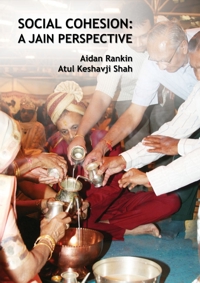Individual and public health is one of the most important keys to social cohesion. Diet and nutrition have always been central to health in the Jain tradition. The right diet not only influences the physical health, but also the mental health of individuals and society. It is now widely accepted that alcohol and drugs are destroying public health, physically and mentally. The Jains have always cautioned against them and emphasised discipline in food. Fasting is also given the highest importance and is encouraged during festivals like Paryushan and Ayambil. Not only does it act as a detoxification of the body, but it also strengthens individual resolve and self-discipline. More importantly, health care has developed too much along the lines of an industry, with a two-dimensional attitude to disease and cure that takes little account of the individual as a whole person, or of the social and ecological factors affecting illness and health. Thus doctors are trained more to address the effects of ill-health than to understand its underlying causes and try to prevent them. They ‘cure’ sickness more than promoting good health. The patient can appear to be less an individual and more a part on a production line, passed from one ‘expert’ or ‘carer’ to another. There is too little one to one emotional support for a patient overcome by illness.
We recommend that health become less of a system and more of a way to happy living. The promotion of a vegetarian diet is critical to this - in fact, it has been shown by a large number of animal health crises in the last two decades that the public cost of the meat industry is colossal and ceases to abate. Evidence is also coming out of the huge adverse health effects of a meat-based diet. Jains have a rich, nutritious and diverse vegetarian cuisine which would help the nation’s health significantly. It would save on the environment bill, the health bill, the food bill and the alcohol and drugs bill. Resources should be spent on health education and training such as Yoga, meditation and Ayurveda should be made widely available in schools and sports and leisure facilities, and promoted through the media.
The practice of spirituality should be encouraged and not suppressed or prohibited as it has a huge contribution to mental and emotional health.
- Prevention is better than cure, but the NHS seems to have too few resources and expertise for preventative health care. This situation is unsustainable - the NHS should be reformed such that it is patient centred and not doctor or drug centred. Alternative systems of health care should be supported and promoted, especially where they have no side-effects and proven benefits.
- Health should be seen holistically and not just biologically as it is practiced today. The causes of poor health should be understood, and stress alleviated through the encouragement of diversity and family and community cohesion.
 Aidan Rankin
Aidan Rankin
 Dr. Atul Keshavji Shah
Dr. Atul Keshavji Shah
